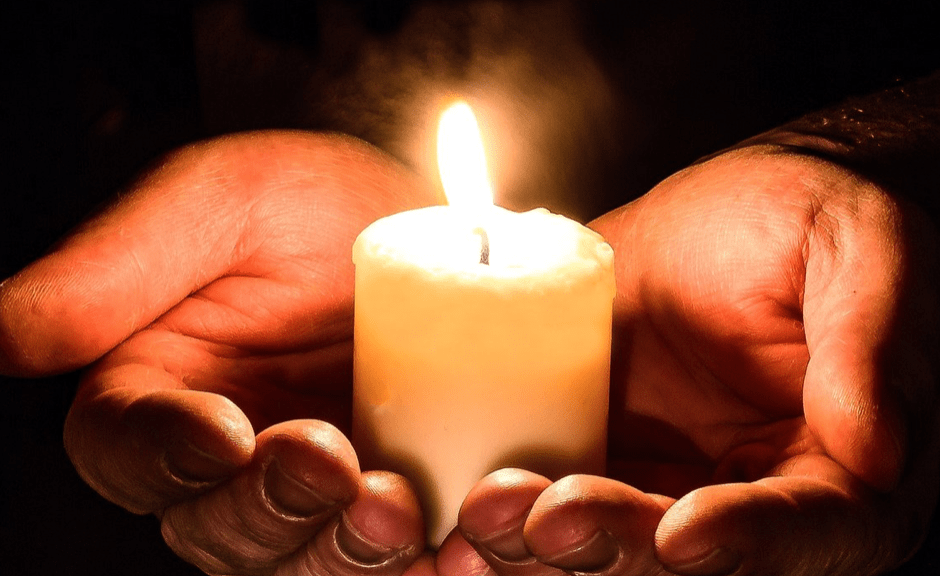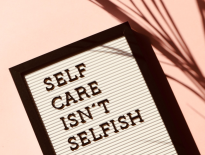
Hoping for the Best: Reaching Toward Healthy Non-Toxic Positivity as We Move Forward
Okay, so as I’m writing this, we’re all facing down the end of that strangest of years, 2020—and looking ahead into 2021. As we do so, I’ve been reflecting a lot about the topic of healthy non-toxic positivity in these sorts of dark times. This blog post will be about just that—looking at the distinction between toxic and non-toxic forms of positivity and why it’s important to keep hoping for and working toward a better world.
A Reminder Of Where I’m Starting From
So quickly, as I get started, I’ll be looking at this from the lens of a communication scholar who studies and teaches about the verbal and non-verbal signs of stress, trauma, and conflict communication.
I’ve also been through my own rough times before this year—and have been applying the stuff I’ve studied and taught about to my own life throughout this year as well as in recent years. It has helped me heal and be more resilient in the face of the challenges that have come.
When Freeze Modes Get Spiritualized in Unhealthy Ways
Part of my experience has involved unwrapping the often toxic positivity that rises up to be glorified as a defense mechanism in unhealthy spiritualities, including many branches of Christianity, without going to the other extremes of embracing the unnecessary glorifications of suffering or cynicism that often come with the same or other traditions.
As I discussed in last week’s article, these types of spiritualities often boil down to a kind of learned helplessness that get into our stress responses to make us think we must stay stuck in inaction, or freeze mode.
Why Toxic Positivity and Undue Embrace of Suffering Can Both Cause Trauma
Both toxic positivity, as represented by statements like “just give it to God,” and toxic embrace of suffering or other forms of spiritualized cynicism can represent what I was calling learned helplessness. If you’re looking for excellent reads on the negative effects of either of these extremes, I recommend reading the books Everything Happens for a Reason and Other Lies We’ve Loved by Kate Bowler and Pure by Linda Kay Klein.
In both extremes, spiritualization of the freeze stress responses can focus on our own inabilities in situations, which can be quite traumatic.
And let’s be clear—when these kinds of unhealthy kinds of coping mechanisms get baked into theologies and spiritual guidance, that trauma can come with an extra helping of spiritual trauma.
Why This Is a Problem
One of the challenges of these types of spiritualizations is that we can create neurobiological patterns I’ve been calling moral disgusts toward the healthiest forms of spiritual and physiological coping mechanisms. I believe that literally healthy spirituality is just that, and is not in conflict with scientific findings.
Framing Matters
In short, the way we talk about good and bad experiences in spiritual terms matters tremendously, and that’s the issue I think it’s important for us to discuss always, but especially now at the hinge of these two years, and also at the hinge between the last four years and a new administration.
Understanding Why It’s Hard to Hope for Better Things
So here’s the thing: our neurobiologies are designed to help us remember the bad stuff much better than the good stuff.
There’s good reason for that. After all, when something really bad happens to us, our warning systems that are our stress responses go on high alert to help us avoid that thing again.
Both fortunately and unfortunately, when our systems get overwhelmed with a lot of stress, one thing our bodies and brains do to cope is to make it harder to feel intense emotions. This can be helpful, as sometimes we can’t take more. But as Brené Brown points out in her excellent book Daring Greatly, our systems don’t selectively numb.
That means that when we’ve been through a lot of stress, like we all have been more or less recently, our systems are more primed to expect the bad than the good.
The Very Natural Problem of Foreboding Joy
Let me say that again: when we’ve been through a lot, it’s literally hard to see that good things are possible. When this happens, it is not a moral defect—it is how our systems are designed to protect us.
They do it well sometimes—and sometimes how they’re designed trips us up.
Brené Brown in Daring Greatly calls out a type of shame—which, again, she defines as a feeling of being unworthy of love and belonging—that’s associated with these types of neurobiological reactions. She calls it foreboding joy, which is basically defined as a feeling that good things surely can’t happen to us because we’re surely not worthy of them.
(If you grew up with doctrines of original sin, this might be feeling uncomfortably close to home right now.)
Foreboding Joy and Self-Fulfilling Prophecies
This neurobiological response is a completely natural one, but interdisciplinary research has shown us that if we believe that good things can’t happen, then we often act in such as way as to create negative self-fulfilling prophecies—which is just a fancy way of saying that we trick ourselves into behaving in such as way that only brings us to self-sabotaging ourselves (which really is a form of learned helplessness in shifting our patterns to bring us to healthier things).
The Opposite Problem: Toxic Positivity
Some strands of spirituality recognizes that this impulse can be misguided at times, and so it tries to bring us to the opposite form of things, that also end up glorifying the freeze response: toxic positivity.
There are lots of forms of toxic positivity, but a lot of them boil down to ignoring all negative realities. This is the kind of spirituality I’ve long been talking about as “Christian Nice.”
Toxic Positivity and Dissociation
Essentially, what this form of spirituality does is spiritualize a trauma response known as dissociation. Dissociation is another extreme form of the types of numbing I discussed just above—what it does is to help us survive by ignoring that whatever traumatized us happened at all.
When Dissociation Unhelpfully Creates More Trauma
While dissociation is helpful to us in some circumstances and short-term to keep us from dealing with too many stresses at once, it’s not helpful long-term. And its application on a spiritual or a societal scale, especially by people in power or with privilege, can create a lot of trauma for people whose real traumas and problems are being ignored.
It can also, as I’ve discussed before, enable toxic systemic issues like toxic masculinity, white supremacy, xenophobia, etc. at the expense of the vulnerable. Or, you know, lead to things like prolonging the negative effects of pandemics by ignoring that they are a problem.
Reaching Toward Healthier Ground that Avoids the Harmful Extremes
How, then, can we avoid these extremes and move forward in a more ethical way of managing all the stress we’ve been dealing with this past year and before?
Well, Emily Nagoski and Amelia Nagoski lay out an excellent solution in their stress-research-based general audience book Burnout. The solution is called positive reappraisal, and it’s a really important reframe that allows us to walk a healthier middle ground.
In describing positive reappraisal, the authors are careful to point out that it’s very different from both toxic positivity and the types of rhetoric that just call us to stay in the freeze mode of suffering rather than reaching for hope of better things.
Reaching Toward the Both/And Of Positive Reappraisal
Positive reappraisal is a both/and approach: it acknowledges both that bad things suck and that positive things and good opportunities for action can be found in the midst of them.
As we move from 2020 into 2021, and look ahead to a political shift in the US as well, may we all have the strength to avoid dissociating from or thinking we need to somehow be thankful for the continuing trials we have and will face, especially the unnecessary ones. And may we also have the strength to use healthy positive reappraisal to reach toward hope.
And as we move ahead, may our spiritualities reflect healthy coping mechanisms that help both ourselves and others, especially the vulnerable, by acknowledging negative feels and real problems, while also nudging us toward continuing to do what we can do toward a better world.
A Final Charge
Go team #AssertiveSpirituality! Let’s continue to do what we can where we are with what we’ve got to keep speaking up against the toxic crap, inside ourselves and without, toward a healthier world for us all. We can do this thing.
Looking for more resources toward speaking up for what’s right and dealing with the conflict that results?
Boy, do we have got a free “Assertive Spirituality Guide to Online Trolls” for you. It actually helps you with conflict both online and off. To get it, sign up for our email newsletter (either in the top bar or by checking the appropriate box when commenting on this article). Once you’ve confirmed your email address, we’ll send you the link to the guide in your final welcome email. You can unsubscribe at any time, but we hope you’ll stick around for our weekly email updates. As soon as we feasibly can we’re hoping to offer more online courses and other support resources for those advocating for the common good, and if you stay subscribed, you’ll be the first to know about these types of things when they pop up.


2 thoughts on “Hoping for the Best: Reaching Toward Healthy Non-Toxic Positivity as We Move Forward”
Hi – I’m on your newsletter and think I signed up twice to be sure but I’ve never received you guide to online trolls which I think I’d find very helpful. If I need too sign up some other way please let me know. Thanks.
Bernie Remington
Hi Bernie! Sorry for the delay–if you email me at assertivespirituality @ gmail I’ll do my best to re-send. Did the final welcome email get stuck in your spam folder, though? Might want to search back through the emails we sent you. I’m sorry to hear you haven’t gotten to read it! Cheers, DS Leiter, Founder, Assertive Spirituality